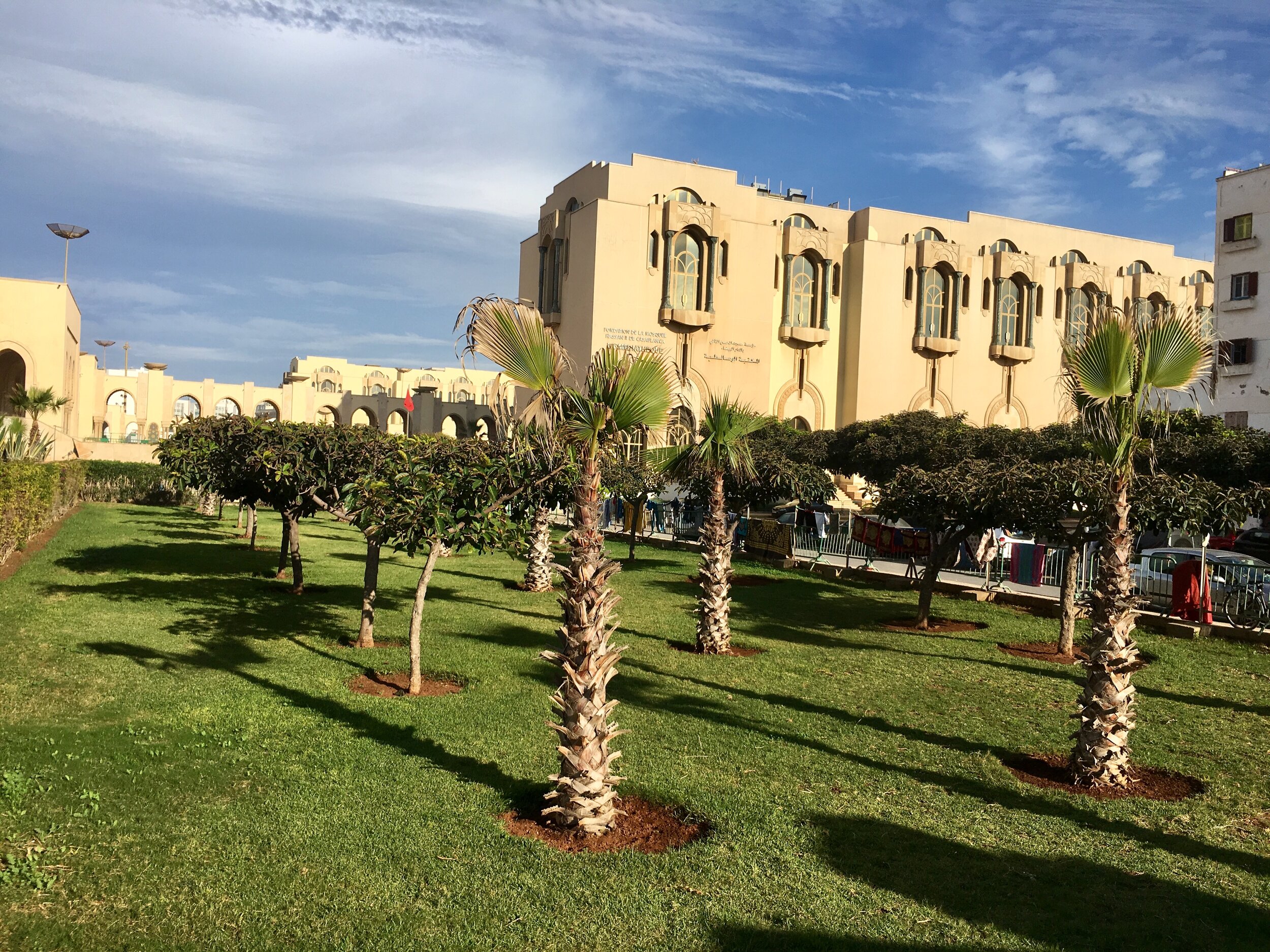How to Travel with Dogs to Morocco—When a Country is NOT Dog Friendly
/This was our first stop on our sailing journey where the culture was not dog-friendly, but exploring Morocco, Africa with our two beagles was still an incredible adventure as we visited Rabat, Casablanca, and Tangier.
By Michelle Segrest, Navigate Travel Adventures
For the most part, we have sailed primarily to dog-friendly countries. Particularly while sailing around Europe, we had no issues whatsoever. Our sailing dogs, Cap’n Jack and Scout, joined us everywhere we went.
We could take them with us into restaurants and shops and most tourist attractions. Particularly in areas like France, Spain, and Portugal, it was actually uncommon to see anyone walking the streets without a dog!
Generally, we kept the beagles on a leash, but we were able to find many beaches, parks, and open fields where we could unleash the hounds and let them run and play freely.
Travel with Dogs Morocco
However, there have been a few places we have visited that were not dog friendly. Morocco was our first stop where we encountered a different atmosphere for dogs.
The customs process in Morocco was easy. The officials were perfectly happy with us using the European Pet Passports as our main documents. Even though we were no longer in the European Union, the officials considered this a proper document.
In the marina, all was good. We kept Cap’n Jack and Scout secured on their leashes at all times and could walk freely around the marina.
But as we ventured deeper into the city center of Rabat, we experienced a very different attitude. We received puzzled glances and noticed that most people were afraid of our adorable little beagles.
It’s difficult to imagine how anyone could be afraid of Cap’n Jack and Scout. But in Morocco, not many dogs are kept as domestic pets. We saw some wild dogs roaming the streets, and we saw dozens of stray cats. But we didn’t see one single dog walking on a leash with a human.
We learned that Moroccans consider dogs to be wild animals—not domestic pets. I suppose it was strange for them to see us taking a couple of wild animals for a walk.
We can understand when we put things into perspective. We compared it to how Alabamians feel about armadillos. We see them everywhere, all the time. We consider them wild animals and probably would not keep one as a pet. It would definitely be odd to see someone walking through the streets of Gulf Shores with an armadillo on a leash.
This must be how the Moroccans feel when they see us walking our beagles. When we posted our VIDEOS ABOUT MOROCCO, we received an insightful comment from a Moroccan who explained the local attitude toward dogs. He told us,
“To answer your question concerning the whys behind Moroccans not having dogs as pets, not all Moroccans can't or won't have dogs as pets but most prefer not to, the reason being that our religion (Islam) says that dogs have very-difficult-to-wash saliva that don't go away with your typical one soap-filled sponge scrub. In fact, our prophet Mohamed says that if a dog licks a plate it should be washed six times with water and the seventh should be done with soil.”
We appreciate this insight. Part of the reason we love to sail the world is to experience and appreciate other cultures.
We experienced other countries in which domesticated dogs were not as common. For example, in Cape Verde, Africa and Cabedelo, Brazil, there are many stray dogs roaming the streets, so it was always necessary to keep Cap’n Jack and Scout on leashes and not allow them to run and play freely.
In Cape Verde, there were hundreds of stray dogs everywhere. They clearly did not belong to any one individual; instead, they were “community pets.” They were well-fed and seemed healthy.
They clearly lived on the streets, but because the climate is so mild, it was perfectly fine for them to live outdoors. Some of these dogs would upset Cap’n Jack and Scout, and others would come right up to them and sniff and calmly get to know each other.
It appeared that none of the males were neutered, so of course, it’s good that our dogs are both “fixed.” While the dogs were wild and undomesticated, they did not appear to be a threat to us.
5 TIPS for Sailing with Dogs WHEN IT’S NOT DOG FRIENDLY
Study the culture before visiting a new country to learn about its prevalent attitude toward pets.
Be respectful of the culture.
Be sure your dogs are spayed or neutered just in case they run into stray animals that probably haven’t been altered.
If you are unsure of an area’s attitude toward animals, keep your dog on a leash at all times.
In addition to the required shots, be sure your dog is up to date on other shots that could be helpful in foreign lands where other diseases and parasites may be present.









If you like this article about Traveling with Dogs to Morocco, please PIN IT!
This page contains affiliate links. If you click on the product links and make a purchase, it allows me to make a small commission at no extra cost to you! Thank you for your support and I hope you find value in this content!

















